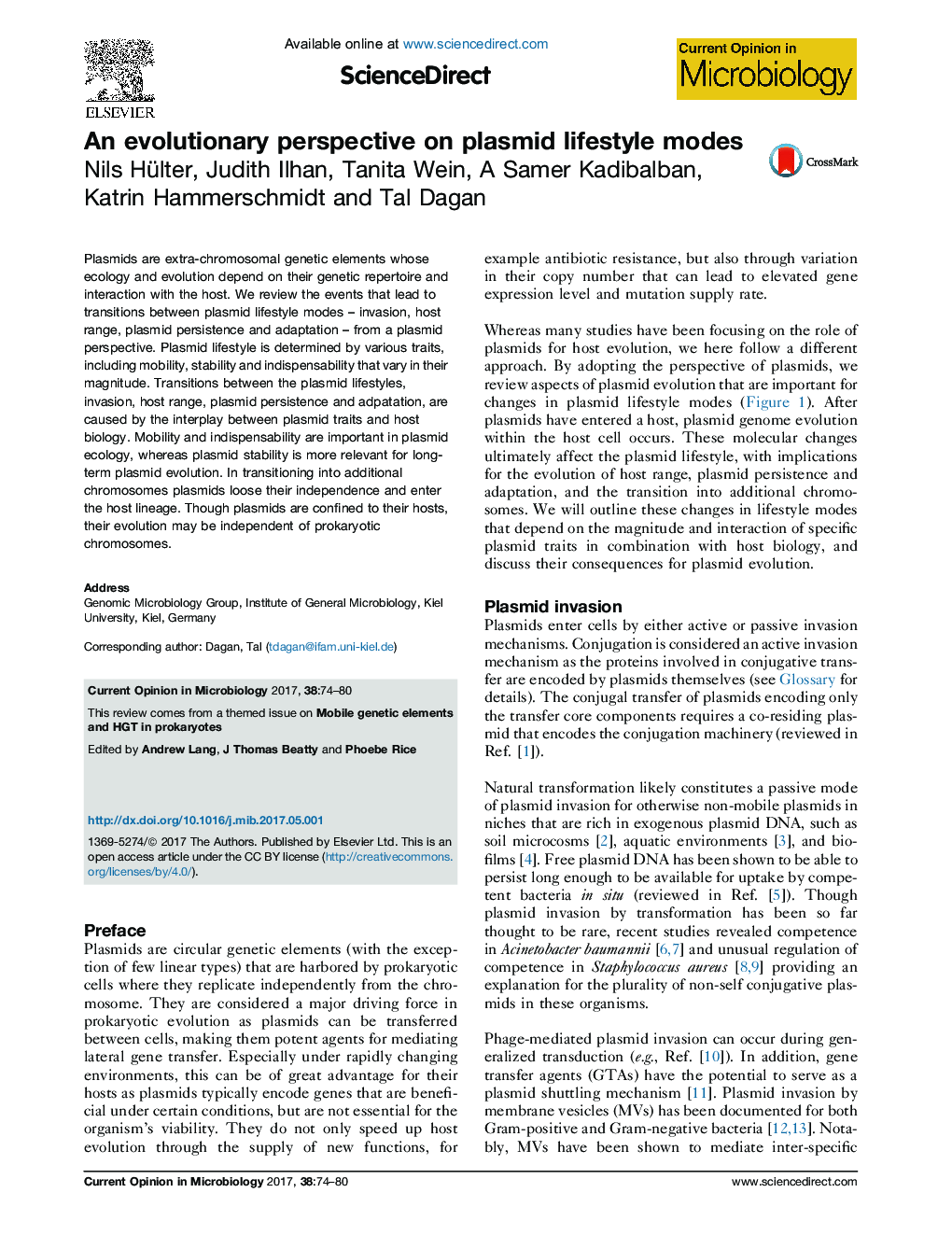| Article ID | Journal | Published Year | Pages | File Type |
|---|---|---|---|---|
| 5671695 | Current Opinion in Microbiology | 2017 | 7 Pages |
â¢Plasmid evolution reviewed from the perspective of plasmids.â¢Mobility, stability, and indispensability largely determine plasmid lifestyles.â¢Changes in plasmid traits facilitate transitions into new lifestyle modes.â¢The intensity of traits and their interaction defines the plasmid lifestyle mode.
Plasmids are extra-chromosomal genetic elements whose ecology and evolution depend on their genetic repertoire and interaction with the host. We review the events that lead to transitions between plasmid lifestyle modes - invasion, host range, plasmid persistence and adaptation - from a plasmid perspective. Plasmid lifestyle is determined by various traits, including mobility, stability and indispensability that vary in their magnitude. Transitions between the plasmid lifestyles, invasion, host range, plasmid persistence and adpatation, are caused by the interplay between plasmid traits and host biology. Mobility and indispensability are important in plasmid ecology, whereas plasmid stability is more relevant for long-term plasmid evolution. In transitioning into additional chromosomes plasmids loose their independence and enter the host lineage. Though plasmids are confined to their hosts, their evolution may be independent of prokaryotic chromosomes.
